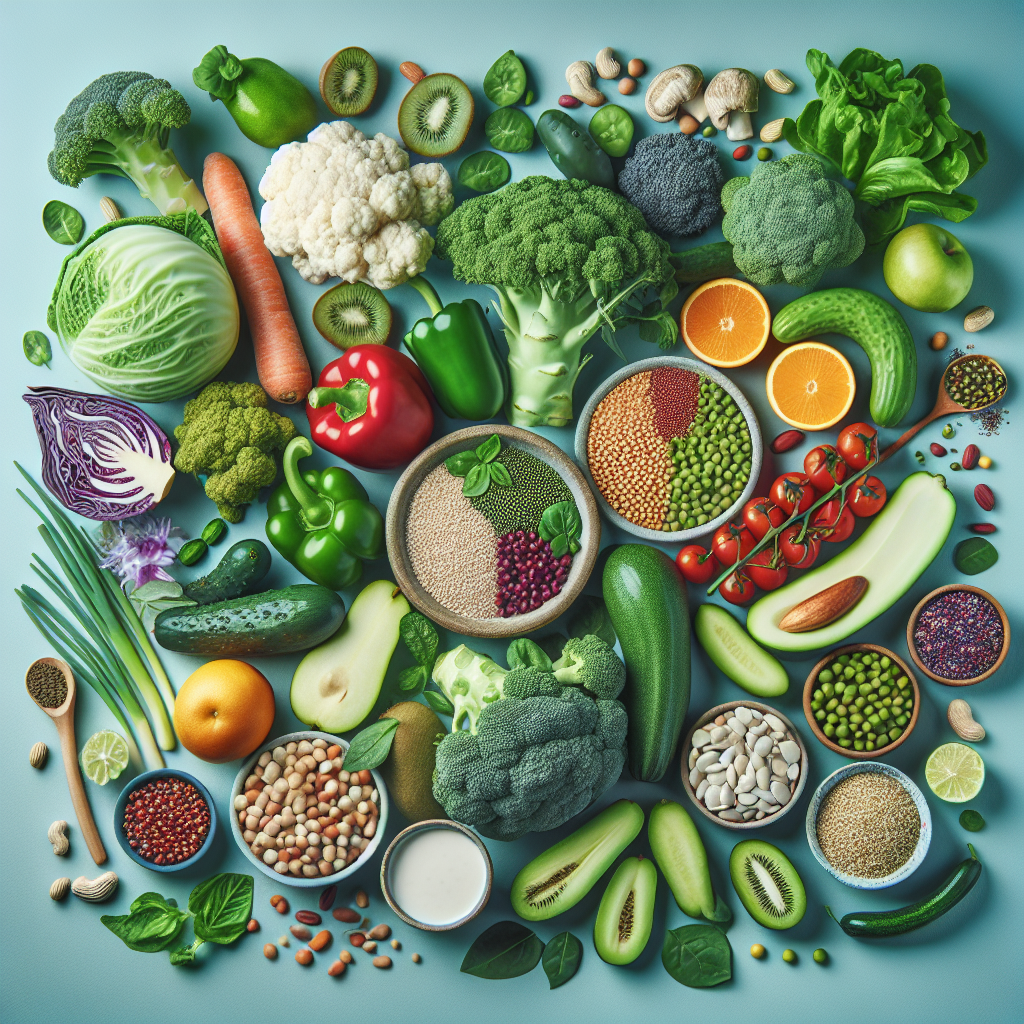In a world increasingly aware of food choices and health implications, the embrace of a plant-based diet is not just a trend—it’s a movement. “The Power of Plants: How a Plant-Based Diet Can Transform Your Health” is a journey into the benefits of this lifestyle, offering insights that could lead you to a happier, healthier life. Let’s delve into how shifting your focus to fruits, vegetables, whole grains, and legumes can benefit your body and mind.
Why Choose a Plant-Based Diet?
A plant-based diet emphasizes eating predominantly or entirely plant-derived foods. This doesn’t mean you have to give up your favorite meals entirely, but it encourages you to incorporate more nutrient-dense options into your diet.
The Benefits of Eating Plants
Choosing to adopt a plant-based diet can yield numerous health benefits:
- Improved Heart Health: Studies have shown that plant-based diets can lower blood pressure and cholesterol levels, reducing the risk of heart disease.
- Weight Management: Plant foods are often lower in calories yet high in fiber, making it easier to manage your weight and feel satisfied.
- Better Digestion: High fiber content from plant foods aids digestion, promoting a healthy gut.
- Increased Energy Levels: Whole plant foods provide essential nutrients that can boost energy and reduce fatigue.
- Stronger Immunity: A diet rich in fruits and vegetables boosts your immune system, helping you resist illnesses.
Key Components of a Plant-Based Diet
Understanding “The Power of Plants: How a Plant-Based Diet Can Transform Your Health” involves knowing the key components that make it truly effective.
1. Fruits and Vegetables
Packed with vitamins, minerals, and antioxidants, fruits and vegetables should form the cornerstone of any plant-based diet. Aim for a colorful variety to maximize nutrient intake.
2. Whole Grains
Whole grains, such as brown rice, quinoa, and oats, provide essential carbohydrates and dietary fiber, keeping you full and energized.
3. Legumes and Pulses
Beans, lentils, and chickpeas are excellent plant-based protein sources. They also add variety to your dishes and are incredibly versatile.
4. Nuts and Seeds
Adding nuts and seeds to your meals can provide healthy fats, protein, and essential nutrients like Omega-3 fatty acids.
5. Plant-Based Alternatives
There is a wide range of plant-based alternatives for dairy and meat. Almond milk, tofu, and tempeh can be delicious options for integrating plant-based nutrition without feeling deprived.
How to Start Your Plant-Based Journey
Transitioning to a plant-based diet can feel overwhelming, but it doesn’t have to be. Here are some simple steps to get you started:
- Gradual Transition: Start by adding one plant-based meal a day. Gradually increase as you become more comfortable.
- Explore New Recipes: Experimenting with new ingredients can make the transition exciting. There are countless recipes available online that can inspire you.
- Set Realistic Goals: Whether it’s Meatless Mondays or a fully plant-based week, setting achievable goals can keep you motivated.
- Listen to Your Body: Pay attention to how your body responds to changes in your diet. You might find that certain foods make you feel vibrant and energized.
Overcoming Common Challenges
While the benefits of “The Power of Plants: How a Plant-Based Diet Can Transform Your Health” are substantial, it’s common to face challenges along the way.
Nutritional Deficiencies
Ensure you’re getting enough nutrients by planning your meals carefully. You may want to consider supplementing with Vitamin B12, Vitamin D, and Omega-3 fatty acids if you cut out animal products.
Social Situations
Dining out or attending gatherings can present hurdles. Choose restaurants with plant-based options, or suggest making a dish to share that fits your diet.
Cravings
When transitioning to a plant-based diet, cravings for familiar comfort foods can arise. Find healthier plant-based substitutes for your favorite dishes to satisfy those cravings without compromising your goals.
Conclusion: Embrace the Power of Plants
“The Power of Plants: How a Plant-Based Diet Can Transform Your Health” is about more than just food choices; it’s about embracing a lifestyle that can lead to vibrant health and wellness. As you embark on this journey, remember to take it one step at a time. Celebrate your victories, big and small, and enjoy exploring the wonderful world of plant-based eating. With each meal, you are investing in your health and well-being—worthy of every bite!








